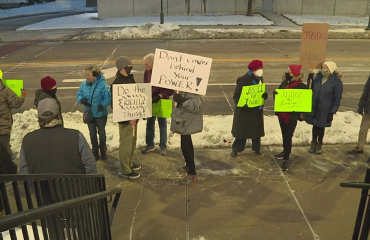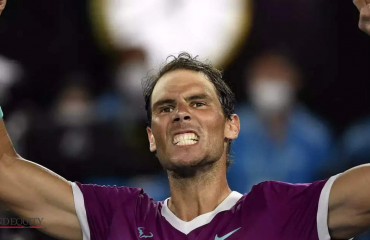Opinion | Musicians, please stop luring your fans into the risky world of NFTs – The Washington Post
Anthony Fantano is a music critic and host of the Needle Drop.
This is a plea to popular musicians: Please stop herding your young fans into potential crypto and NFT scams. Please, please, please, please, please. That’s six pleases in total, so you know this is pretty serious.
Anybody who’s glanced at the news recently has caught wind of the financial feeding frenzy sparked by NFTs: unique digital assets such as images, music, videos — really any commodified piece of media online.
The NFT world isn’t just about the fun of collecting and sharing cute, quirky jpegs in the way that you might have used trading cards or beanie babies back in the day. Rarity is baked into the cake; the “T” in “NFT” represents a one-of-a-kind token, which also makes them an investment of sorts. The certificate of authenticity is recorded on a blockchain, a public digital database — supposedly impossible to change or hack — where transactions are verified by users, not a central authority.
There’s an ocean of articles about NFTs where the story is less about the art — there’s not much on that front, anyway — and more about their perceived value. Nowhere are these headlines proliferating faster than in the music world, with artists being turned into crypto billboards by brands such as Bored Ape Yacht Club, which releases illustrations of cartoon primates.
The musicians Post Malone and the Weeknd recently dropped a music video that depicted the purchase of a Bored Ape NFT (Post Malone reportedly spent more than $700,000 for his two Bored Apes). But he’s just the latest artist to jump on the bandwagon. Eminem, Justin Bieber, Lil Baby, Future and Steve Aoki are among those grabbing headlines by simply making announcements of a NFT purchase.
This isn’t a passion; it’s barely a newfound interest. The whole thing stinks like an astroturfed promotional campaign to generate interest in cheaply made primate doodles.
No hardcore Eminem stan can imagine the rapper spending hours searching for the perfect Bored Ape, and then blowing almost half a million dollars on it. Even One Direction fans are cringing at Liam Payne’s new Twitter account, where he tweets about NFTs, in the same way you might respond to co-worker baby pictures you don’t want to see.
These are brand tie-ins. Nothing more, nothing less.
I don’t have anything against the idea of people trading or buying digital art for fun. Some of the overnight success independent artists have seen in the NFT space is genuinely inspiring. But to focus on this is to ignore the lack of regulation in this corner of the Internet, and the amount of scams that result.
This isn’t the kind of world for people who are still learning how to make smart financial decisions. Thousands of Americans have invested in cryptocurrencies in recent years, but the currencies’ prices have cratered since reaching all-time highs in November, wiping out more than $1 trillion in value globally.
Even if Bored Ape seems like a relatively stable brand, most of the roads that lead beyond this NFT gateway feed into dead-ends and outright scams. Recently, a Bored Ape look-alike reportedly ran off with over 1 million in minting fees before disappearing from the Internet in what is known as a “rug pull.”
Even Payne recently had to warn people that his music had been turned into NFTs without his permission on a shady music NFT website. After other labels and musicians found their music on the platform, too, the site was taken down.
The dangers of the NFT world don’t just rest on the shoulders of rogue scammers, though. Some of the largest mediators and marketplaces in this space, such as Civic and OpenSea, have done a poor job at guaranteeing legitimate results to brands looking to get in on the NFT craze. Right now the value of your “unique token” can disappear overnight because there’s so little oversight.
Maybe that will change, but this isn’t the world we live in, and famous musicians and other celebrities greedily funneling their fans into this space isn’t helping. It’s just assuring this stuff stays lucrative at the cost of a genuine emotional connection people have made with some of their favorite musicians’ work.
That’s a trade that doesn’t pay off in the long term.
Top image sources: “One Right Now,” Post Malone, The Weeknd, UMG; @boredapeyachtclub, @mutantapeyachtclub @dustofgods @jasonnaylor @joeyezzi; @justinbieber; @SnoopDogg; @CozomoMedici; @Eminem; @Gee_Gazza
Opinion•
Opinion•
Opinion•



